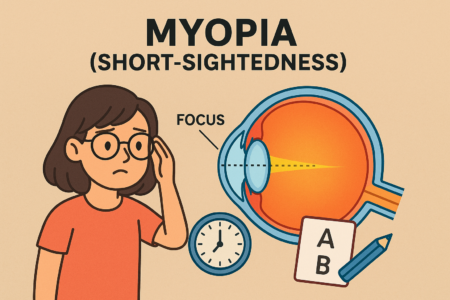Introduction
Hydration is a fundamental aspect of overall health and well-being, playing a crucial role in various bodily functions, including cognitive processes. In this blog, we delve into the importance of hydration for cognitive functions, exploring how staying properly hydrated can boost brain performance, enhance mental clarity, and improve overall cognitive health.
Understanding the Role of Hydration in Cognitive Functions
Before delving into the specifics of how hydration impacts cognitive functions, it’s important to understand the role of water in the brain. The brain is composed of approximately 75% water, making hydration essential for optimal brain function. Water helps regulate temperature, maintain electrolyte balance, and facilitate the transport of nutrients and oxygen to brain cells. Additionally, adequate hydration is necessary for the production of neurotransmitters, the chemical messengers that facilitate communication between brain cells.
The Impact of Dehydration on Cognitive Functions
Engaging in creative activities such as DIY crafts can provide a welcome respite from the demands of academic life and offer a range of therapeutic benefits:
Dehydration occurs when the body loses more water than it takes in, leading to a range of physiological and cognitive effects. Even mild dehydration can impair cognitive functions, including memory, attention, concentration, and decision-making. Research has shown that dehydration can negatively affect mood, increase feelings of fatigue and anxiety, and impair overall cognitive performance. As dehydration worsens, symptoms may escalate, leading to confusion, disorientation, and decreased alertness.
Hydration and Memory
Memory is one of the cognitive functions most affected by hydration levels. Studies have demonstrated that dehydration can impair both short-term and long-term memory, making it more difficult to retain and recall information. Dehydration may also interfere with cognitive processes involved in memory formation, consolidation, and retrieval. Maintaining optimal hydration levels is essential for preserving memory function and supporting cognitive performance, particularly during periods of intense mental activity or stress.
Hydration and Attention
Attention is another cognitive function that can be significantly impacted by hydration status. Dehydration has been shown to reduce vigilance, focus, and sustained attention, making it harder to concentrate on tasks and maintain mental clarity. Even mild dehydration can lead to lapses in attention and performance decrements, particularly in tasks that require sustained cognitive effort or vigilance. By staying hydrated, individuals can enhance their ability to stay focused, alert, and attentive throughout the day.
Hydration and Executive Functions
Executive functions refer to a set of cognitive processes responsible for goal-directed behavior, decision-making, and self-regulation. These functions include tasks such as planning, problem-solving, organization, and impulse control. Dehydration can impair executive functions by compromising cognitive flexibility, inhibitory control, and decision-making abilities. Studies have shown that even mild dehydration can lead to declines in executive performance, making it more difficult to navigate complex tasks and make sound decisions.
Strategies for Maintaining Hydration and Supporting Cognitive Functions
To optimize cognitive functions and support overall brain health, it’s essential to stay properly hydrated throughout the day. Here are some strategies for maintaining hydration and promoting cognitive performance:
Drink an adequate amount of water:
Aim to drink at least 8-10 cups of water per day to maintain optimal hydration levels. However, this recommendation may vary depending on factors such as age, weight, activity level, and climate. If you’re physically active or in a hot environment, you may need to increase your fluid intake to replenish lost fluids through sweat. Carrying a reusable water bottle with you throughout the day ensures easy access to hydration, helping you stay refreshed and energized.
Monitor urine color:
Pay attention to the color of your urine as a simple indicator of hydration status. Ideally, urine should be pale yellow in color, indicating that you’re adequately hydrated. On the other hand, darker urine may signal dehydration and a need to increase fluid intake. By monitoring urine color, you can gauge your hydration levels and make adjustments to your fluid intake accordingly.
Eat hydrating foods:
In addition to drinking water, incorporate hydrating foods into your diet to boost your overall fluid intake. Fruits and vegetables with high water content, such as cucumbers, watermelon, oranges, and strawberries, are excellent choices for staying hydrated while also providing essential vitamins, minerals, and antioxidants. Including these hydrating foods in your meals and snacks can help you meet your hydration goals while nourishing your body with vital nutrients.
Avoid excessive caffeine and alcohol:
Be mindful of your consumption of caffeinated and alcoholic beverages, as they can have diuretic effects and contribute to dehydration. While moderate consumption of coffee, tea, and alcoholic drinks is generally safe for most people, excessive intake can lead to increased urination and fluid loss. If you choose to indulge in caffeinated or alcoholic beverages, balance them with plenty of water to offset their diuretic effects and maintain hydration.
Take regular hydration breaks:
Incorporate regular hydration breaks into your daily routine to ensure consistent fluid intake throughout the day. Set reminders on your phone or computer to prompt you to take breaks and drink water, especially during periods of intense mental activity or stress. By scheduling regular hydration breaks, you can make staying hydrated a priority and prevent dehydration-related symptoms such as fatigue, headaches, and difficulty concentrating.
Listen to your body:
Pay attention to your body’s signals of thirst and prioritize hydration as a fundamental aspect of self-care. Thirst is your body’s way of signaling that it needs fluids, so listen to your thirst cues and drink water accordingly. Remember that maintaining optimal hydration is essential for supporting cognitive functions, enhancing mental clarity, and promoting overall well-being. By tuning in to your body’s needs and responding with adequate hydration, you can support your physical and mental health for optimal functioning and well-being.
Conclusion
Hydration plays a vital role in supporting cognitive functions and overall brain health. By staying properly hydrated, individuals can optimize memory, attention, executive functions, and other cognitive processes essential for daily functioning. Incorporating simple strategies for maintaining hydration can help individuals stay focused, alert, and mentally sharp throughout the day, ultimately enhancing productivity, performance, and quality of life. So remember to drink up and prioritize hydration as an essential component of your cognitive wellness routine.







